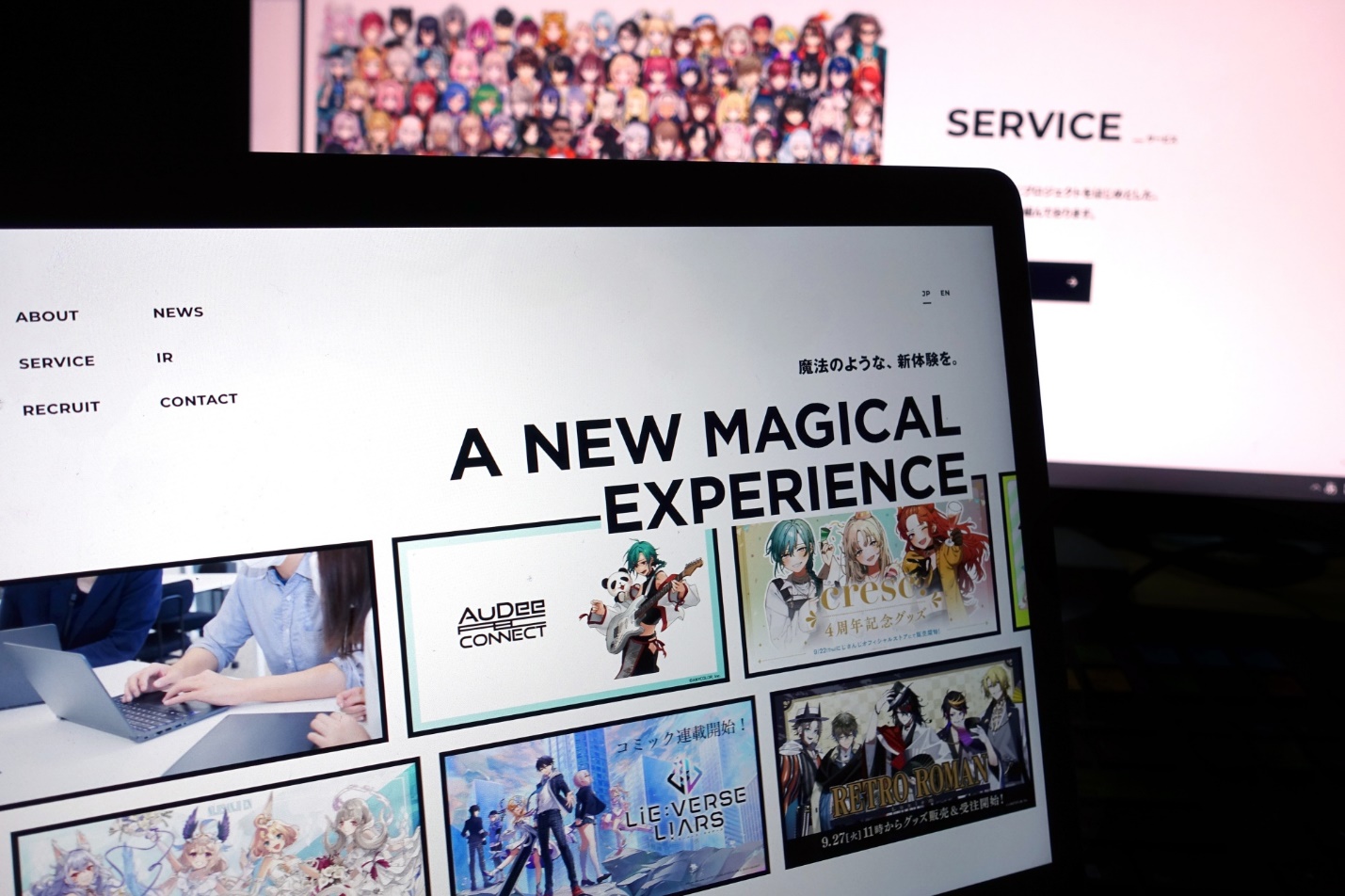The 26-year-old man entered the group of the youngest billionaires in Japan thanks to virtual stars on YouTube
- Tram Ho
Japan has turned real-life YouTube stars into virtual stars. A company that manages these virtual stars has produced one of Japan’s youngest billionaires.
That is the company Anycolor that currently manages about 140 content creators. Each person works on YouTube with a different virtual character.
Shares of Anycolor Inc. has grown eightfold since listing on the Tokyo Stock Exchange in June. The company has become one of the best performing stockholders in the market. Anycolor is also valued at around 370 billion yen ($2.5 billion).
Company founder Riku Tazumi, 26, owns a 45% stake now worth $1.1 billion, even as the yen to dollar exchange rate fell to its lowest level in decades.
Mr. Tazumi founded the Tokyo-based company in 2017, while he was still a university student. The company was then named Ichikara, literally “from zero”. He wants to use anime as a gateway to the opportunity to become a next-generation entertainment company that is not “bound by the traditional framework of the industry,” writes Tazumi on the company’s website.
Masahiro Hasegawa, an analyst at research firm Humanmedia in Tokyo, said: “Anycolor is like Tesla, because there is always talk of the stock being overvalued. But investors are the ones want to bet on the future and here are some people with high expectations.”

Anycolor’s website. Photo: Takaaki Iwabu/Bloomberg.
Anycolor’s stellar track record stands out from the rest, in a year when global investors shunned high-growth names. The company’s impressive debut shows the market’s confidence in Japan’s ability to monetize anime and pop idol culture, while turning intellectual assets into a steady stream of profits.
“Talent management companies have always been an extremely strong business in Japan. People are betting that this is the next generation of similar businesses,” said Hasegawa.
The main attraction in the eyes of investors is Anycolor’s potential for overseas expansion, unlike domestic talent management firms such as Johnny & Associates. The Johnny & Associates company manages pop idol groups, including Arashi and Snow Man, with huge fan bases in Japan. But they rarely appear in foreign markets.
In its first report last month, Anycolor announced its operating profit nearly tripled to 2.1 billion yen in the three months to July, up sharply from 842 million yen in the same period last year. .
Revenue from the global English-language service used by viewers inside and outside Japan more than doubled to about 1.6 billion yen quarter-on-quarter. Shares of Anycolor rose 46% in the three days that followed.
“The company’s global sales have taken a leap,” said Tomoichiro Kubota, senior market analyst at Matsui Securities.

Anime characters on Bilibili application. Photo: Roy Liu/Bloomberg.
The company’s popularity is thanks to the virtual characters on YouTube promoted under the brand name Nijisanji. These virtual YouTubers often play video games online, while also interacting with people watching them live. The operation is similar to Amazon’s Twitch streaming game, but on a different platform with an anime appeal.
According to analyst Kubota, few businesses are successful in making money from YouTube. Bilibili Inc. of China is an online entertainment service provider including virtual YouTuber. The company’s shares surged during the pandemic outbreak, then plummeted more than 90% as the global economy shrank and lost money. The company may even be forced to delist on Nasdaq.
But these virtual idols are helping Anycolor company go beyond the hype by selling items to fans. At the same time, virtual YouTubers don’t have to spend a lot of money associated with holding live meetings or performing on TV shows that bands often do.
Analyst Hasegawa said: “Fans tend to spend more of their income on these stars than the average consumer. And now we are seeing this Japanese culture spreading. expand abroad”.
Some are questioning the video quality of virtual YouTubers. They think that the quality is not equal to the animation works of leading Japanese producers or other famous groups. But improving the quality will be very expensive. According to Kubota, investors will need to watch for sustained earnings growth in the coming quarters.
According to Bloomberg
Source : Genk
